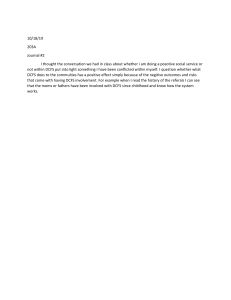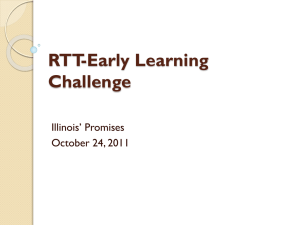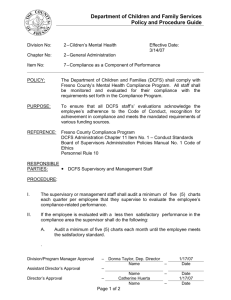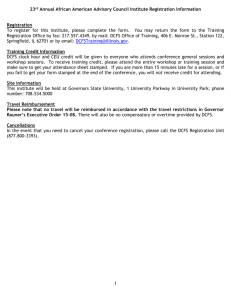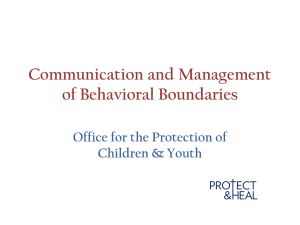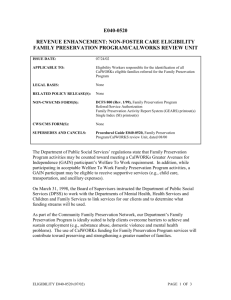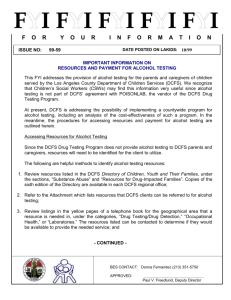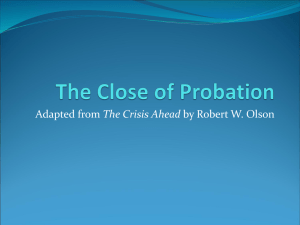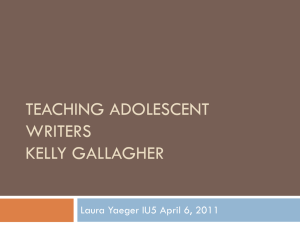07/04 - DCFS Alchol and Drug Testing Services
advertisement
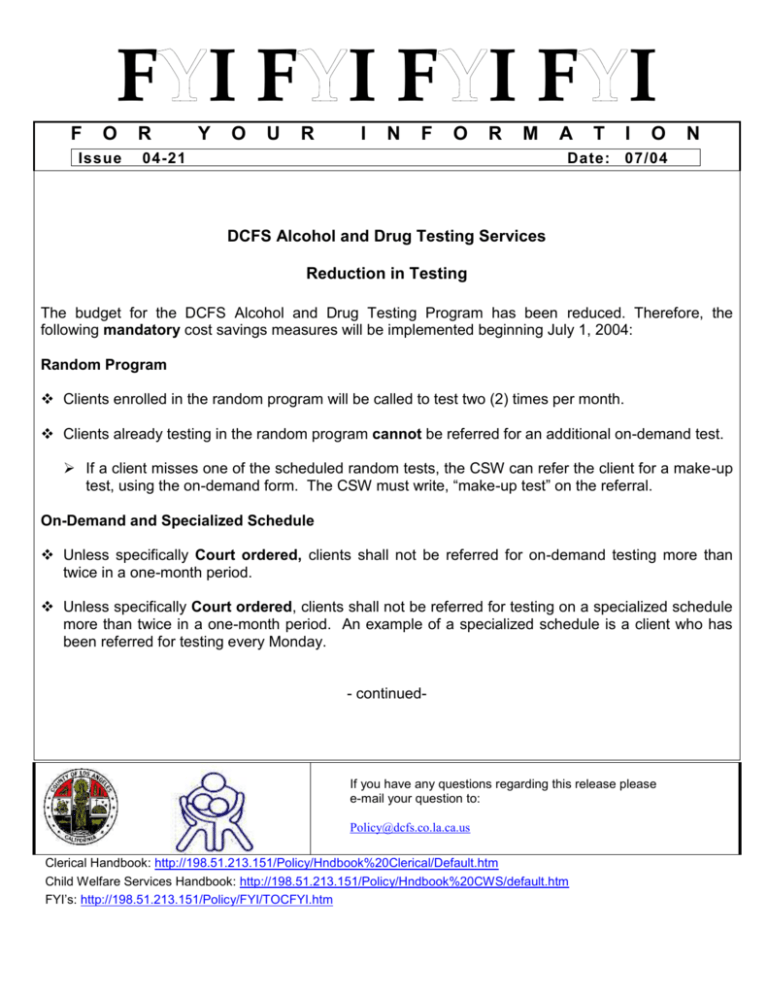
F IF IF IF I F O Issue R Y O U R I N F O R M 04-21 A T Date: I O N 07/04 DCFS Alcohol and Drug Testing Services Reduction in Testing The budget for the DCFS Alcohol and Drug Testing Program has been reduced. Therefore, the following mandatory cost savings measures will be implemented beginning July 1, 2004: Random Program Clients enrolled in the random program will be called to test two (2) times per month. Clients already testing in the random program cannot be referred for an additional on-demand test. If a client misses one of the scheduled random tests, the CSW can refer the client for a make-up test, using the on-demand form. The CSW must write, “make-up test” on the referral. On-Demand and Specialized Schedule Unless specifically Court ordered, clients shall not be referred for on-demand testing more than twice in a one-month period. Unless specifically Court ordered, clients shall not be referred for testing on a specialized schedule more than twice in a one-month period. An example of a specialized schedule is a client who has been referred for testing every Monday. - continued- If you have any questions regarding this release please e-mail your question to: Policy@dcfs.co.la.ca.us Clerical Handbook: http://198.51.213.151/Policy/Hndbook%20Clerical/Default.htm Child Welfare Services Handbook: http://198.51.213.151/Policy/Hndbook%20CWS/default.htm FYI’s: http://198.51.213.151/Policy/FYI/TOCFYI.htm Suggestions for Children’s Social Workers and Supervising Children’s Social Workers on Alternatives to Referring Clients to the Alcohol and Drug Testing Program The following factors should be considered prior to making a referral to the DCFS Alcohol and Drug Testing Program: Is drug/alcohol use a factor in the allegation(s)? Is there evidence of drug/alcohol use, e.g., client visibly intoxicated, drug paraphernalia around the home, and information from collateral contacts? Does the client acknowledge alcohol/drug use and is (s)he willing to participate in treatment? If yes to the above, find out if the treatment facility being considered, does drug testing (most do not do alcohol testing), and complete and obtain the client’s signature on the ABCDM 228, Applicant’s Authorization for Release of Information, specifying information regarding drug tests. Is the client receiving CalWORKS or General Relief (GR), or is the client eligible to receive CalWORKS or GR? If yes, refer the client to the Department of Public Social Services (DPSS), and instruct the client to disclose the substance abuse problem and request a referral for supportive services. CalWORKS clients with substance abuse, mental health, or domestic violence problems, are entitled to receive supportive services in the form of assessment and treatment of the problem. In addition, they may receive child-care, transportation allowance and ancillary services. Is the client on probation due to drug charges? If yes, the client is probably testing through the Probation Department. Identify the Probation Officer supervising the client, and work with the Probation Officer to facilitate receiving the drug test results.
